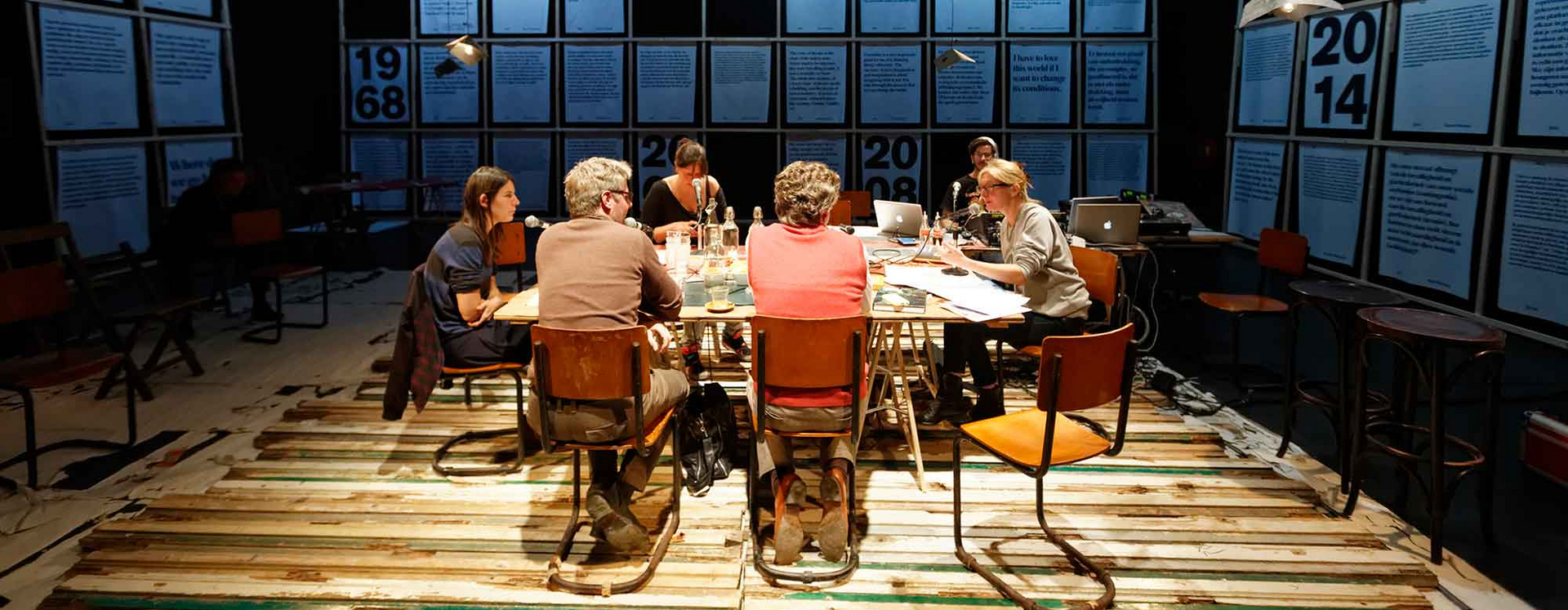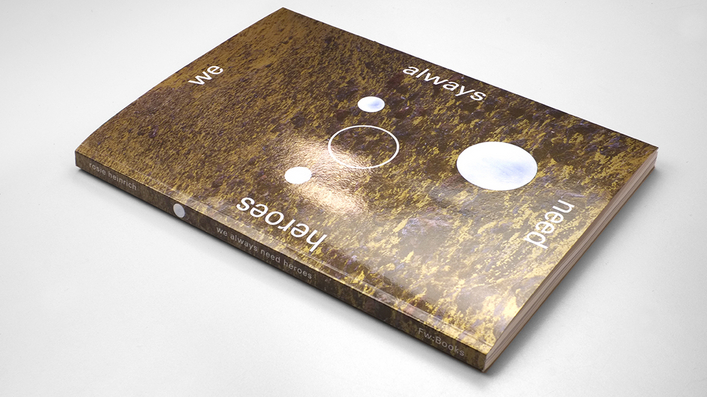Rosie Heinrich
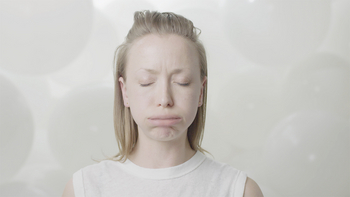
Eat my words (work in progress), Rosie Heinrich in collaboration with Katrin Hahner
Visual artist Rosie Heinrich (UK born, Amsterdam based) explores the constructs of self-storytelling, belief, reality and (spoken or wordless) language. She works with audio and video, book making, performance, photography and installations, drawing from an exhaustive practice of interviewing, and using recorded conversations and their transcription as her central medium for both research and production.
Heinrich is currently a fellow of THIRD Cycle Research Group at the DAS Graduate School, Amsterdam. She received her Master in Fine Arts at the Dutch Art Institute, where she was also member of the research collective APRC. Her recent artist book We always need heroes, published by Fw:Books, was awarded Best Verzorgde Boeken 2018 (by both the professional and student jury), and shortlisted Arles Photo-Text Book Award 2019: exhibited at Stedelijk Museum Amsterdam, and Rencontres d'Arles, respectively. Her works have also been shown, among others, at Cycle Music and Art Festival (Kópavogur, IS), SYB Triennial (Beetsterzwaag, NL), puntWG (Amsterdam), A Tale of a Tub (Rotterdam), and Veem House for Performance (Amsterdam).
We always need heroes (2020), Rosie Heinrich
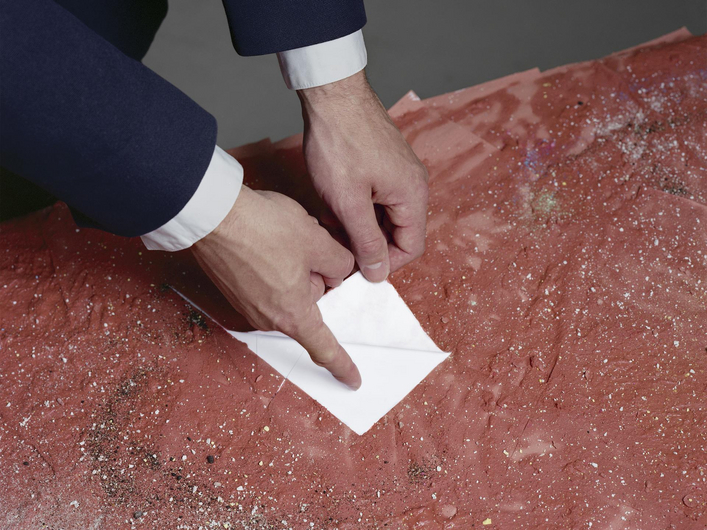
We always need heroes (2020), Rosie Heinrich
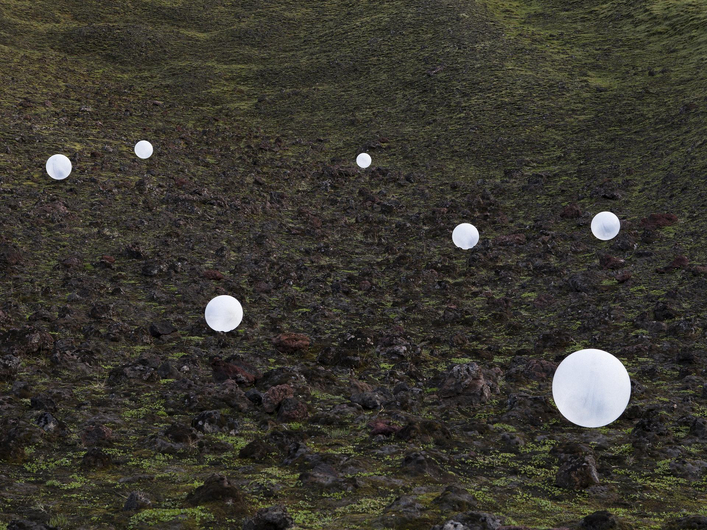
We always need heroes (2020), Rosie Heinrich
We always need heroes (2020), running time 46 minutes
'There’s never any innocence in the processes of remembering and forgetting.'
‘Alternative facts’ have always been present in the making of our histories, nations, self-storytelling and self-imaging. When the banks collapsed in 2008, for Icelanders this marked what has been locally dubbed the ‘Cultural Crash’. The nation’s collective reality proved an illusion, a construct, a fiction.
We always need heroes surveys the contemporary state of our narrative landscapes. It addresses the art of reframing and rephrasing, of discursively creating and conveniently forgetting: the misconstrued, the black holes, the blind spots. The project is a multi-vocal complex of perspectives, in which interchanging voices complete one another’s sentences, punctuate and perforate their meanings, derail directions, and motion an aesthetic for listening.
We always need heroes – a multidisciplinary project by visual artist Rosie Heinrich – comprising: single screen film, artist book (published by Fw:Books), multi-channel video installation, wall pieces, photographic works, choral work.
At the belly of belief
Learning to listen: disassembling the voice, (wordless) language, and (self-)storytelling.
In the collaborative act of listening, listeners become the co-author of what is said and its perceived meaning. This is one aspect of how collective narratives are formed – to a positive or negative effect – and how the art of sublime rhetoric functions, where orator and listener transcend into reciprocal meaning-making. Here an orator knowingly delivers an unfinished artwork (a painting of insinuations, a malleable vision) for the listener to complete with her own meaning and, if effective, they collaboratively craft a sense – false or otherwise – of collective belief.
What is our agency as listeners? What do we want to hear? How do we choose to listen?
From the position and perception of the listener – the receiver and meaning maker – I aim to explore our different modes of listening to the voice (projective, receptive, open, active, close, critical) and therein discover new nuances of listening, and our agency in destabilising hardened beliefs and remaking meaning.
My points of departure for this practice-led research are: the voice as a bodily instrument (its repurposing of the tongue, digestive pipe, and windpipe), the ingestion of words and stories, the bodily origins of belief (that gut feeling), the make-up of (collective) memory, the phenomenon of co-authorship, the art of sublime rhetoric, historical notions behind (collective) ventriloquism – or speaking from the belly – (as both a conduit for the past’s dead and a foreteller of the future), displaced and borrowed voices, and languages of the unsaid.
How do our ears read between the lines and fill in the gaps? What orchestrates our listening and perception of meaning? By learning about the power of the ear, what can we subvert in the telling, reception and perception of words and stories, and in so doing the constitution of our belief systems?
more info
www.rosieheinrich.info
Artist book: We always need heroes
Listen to the Podcast
article on how there is no one ˈNÆRƏTꞮV
